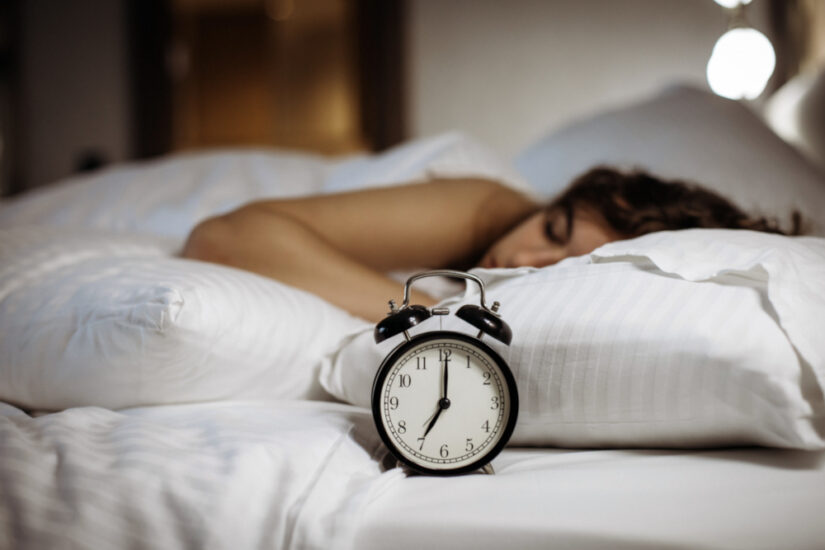How often do you get up in the morning feeling like you haven’t had enough sleep – even though you might have spent 8-10 hours in bed?
You drag yourself out of bed feeling groggy and thinking, “if only I could have just one more hour, I would be fine”.
According to the Sleep Health Foundation study (from 2023) –
“On a typical working day, the average Australian gets around 7 hours of sleep. Australians generally consider 8 hours of sleep per day as an indicator of a good sleep.”
So that wish for an extra hour is all very well and good, but even if it were achieved, in most cases it would make no real difference, for various reasons, some of which we will mention below.
Around this time of year, when many are taking holidays (even if only short), most of us make some sort of “resolution” even if we don’t call it that. We think about things, actions, activities or tasks that we hope might improve our situations for the next year.
Common thoughts are things such as –
- Maybe I should lose some weight this year
- Maybe this is the year I’m going to get fit
- Maybe I spelt fit incorrectly (after all, I thought the same thing last year and only got fat)
- Or – this year I’m going to get better sleep
So let’s talk about that last one…
Sleep
Have you noticed that half the people you know don’t seem to be functioning at their best – as you walk through the city, the crowds of people seem to be walking in a daze – they look like zombies?
Most of the population nowadays doesn’t achieve enough sleep or enough good quality sleep. According to the Sleep Health Foundation, many Australians report struggling with sleep, with 66% reporting at least one sleep problem and 48% reporting at least two.
There are many different things that cause problems with sleep, and many different solutions to these problems. And if you think, just taking some pills (prescribed medication, or something your friend, pharmacist or naturopath recommended) will fix it for you, you might be very disappointed.
What really needs to be done is to find out –
- What specific Sleep Problem you have.
- The cause of a sleep problem,
- …and then, how to deal with that cause, so that you can achieve the quality and quantity of sleep that you need.
Maybe you don’t actually have insomnia, perhaps it’s something else.
… and if it is insomnia what’s causing it – is it :
- Is it stress
- your diet?
- the environment you’re sleeping in?
- that you’re sleeping partner is tossing and turning all night and keeping you awake?
- something else?
Did you know that in some cases insomnia is actually caused by poor quality sleep from the previous night (and it may actually be snoring or sleep apnoea that’s causing your insomnia)?
Snoring and Sleep Apnoea
We don’t take much notice of snoring – we even think it’s funny. There are plenty of comedy skits based around somebody snoring. But did you know that simple snoring can actually cause a stroke or sudden death?
And sleep apnoea is well documented to be the cause of a wide range of serious health issues. So, it’s important to do something about these problems – sooner, rather than putting it off.
Then, there is the effect on the workplace. According to the Sleep Health Foundation research, in 2023 –
- Almost 4 in 5 (78%) employed Australians state that insufficient sleep negatively impacts their workday at least once a week.
- 1 in 5 (20%) employed Australians have called in sick three or more times in the past year solely due to inadequate sleep.
Poor Sleep in our Children
- More than 1 in 5 (21%) parents find it challenging to get their kids to bed on time an
- 1 in 6 (16%) report that their children wake up multiple times during the night.
- Over 2 in 5 (44%) parents observe behavioural problems when their child(ren) do not get enough sleep,
- 39% notice difficulties with focusing and attention and 24% observe mood disorders.
- Many children have been mis-diagnosed with ADHD, when in fact, they have a problem with sleep – in fact in many countries, a requirement for a diagnosis of ADHD is that a type 1 or 2 sleep study be done first, to rule out sleep problems before the final diagnosis can be made. Unfortunately, this does not yet apply in Australia, so many kids have been prescribed potent medication for a condition they do not have. See my older post on Neurocognitive Development as well as a very old and “politically incorrect” article on “Causes of Backwardness and Stupidity in Children”
- 2 in 5 (40%) parents have experienced a negative impact on their own sleep quality since having childre

By the way…. If you think that your child’s snoring or loud breathing in their sleep is cute – think again. Snoring is an indication that they are having trouble breathing – literally choking in their sleep.
It affects the growth and development of the jaws and upper airway, and can greatly increase the likely need for orthodontic treatment later on, and increase the chance of long-term snoring and sleep apnoea and jaw joint problems.
Not so cute at all… Snoring in children is the beginning of a life-time of problems (and expense).
What can be done?
OK – We know sleep is a problem. Now we know it might be worse than we thought…
So what can be done about it?
What to do depends very much on the details of what is wrong. This is why you and/or your children need to be assessed by someone who has an excellent understanding of these types of problems, and knows what is needed, and who should be providing plenty of information and the appropriate treatment. There is no such thing as a specialist who can manage all of the different types of sleep problems, so don’t let anyone convince you that they can.
Sleep physicians can help with some sleep problems – but they have a tendency to overlook other important factors.
Some dentists can help with some areas, but very few are properly and formally trained to catch some of the complications, or know what to do when things don’t go according to plan. For children, some dentists are trained to help the jaws grow in the right direction, but few understand the significance of the airway in this, and how much the airway and jaw growth interact and affect each other.
Myofunctional therapists can help retrain the tongue and other muscles around the airway. This helps a lot with most patients, but only if other factors are treated at the same time.
An ENT (Ear, Nose & Throat) Specialist can take care of pathological tissue. Some will even claim that this has cured snoring and sleep apnoea – but it doesn’t. It is an essential part of treatment in the right cases, but, alone, is not enough.
At Mountains TMJ & Dental Sleep Medicine, Dr Trevor Baret has been very well trained in the essential disciplines to treat these problems and to help children with growth and development. He also has decades of experience treating sleep problems, and dentofacial growth and development. In fact, with his post-graduate qualifications and decades of experience, there is nobody else in the Blue Mountains who is better qualified to assist.
Dr Baret does not pretend that he can do it all himself. That would be foolish arrogance, and putting his patients at risk. He knows the right people to work with, to achieve the best possible results for his patients. There are even (rare) cases where Dr Baret acts as a consultant to oversee treatment and help the patient to see the other professionals who can help their specific needs, while Dr Baret becomes the “Director of the Movie of their treatment”
So, if you have resolved (either with a written goal setting exercise, or simply a thought that it might be a good idea) to improve your sleep, come and see Dr Baret at Mountains TMJ & Dental Sleep Medicine, and let him help you to achieve better sleep and better health.

